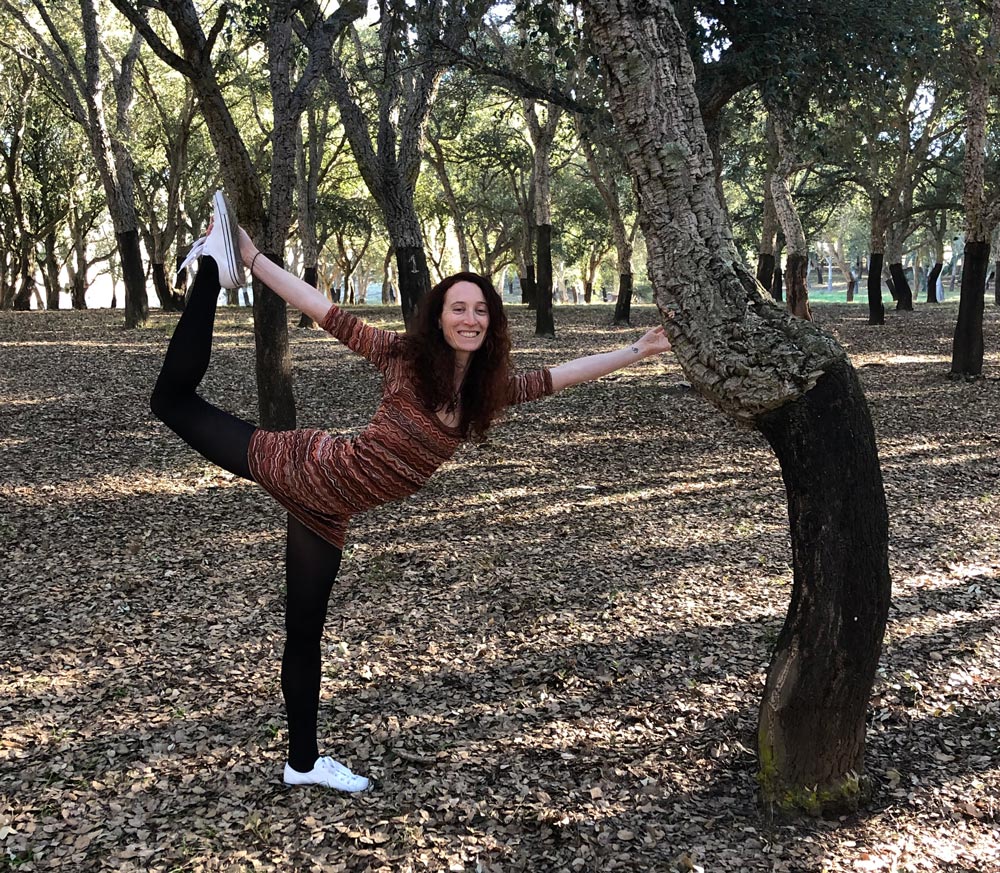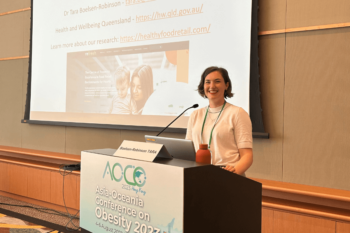Meet Dr Melanie Pescud

DATE
TYPE Profiles
A move to Canberra from her home town of Perth was the catalyst for Melanie Pescud’s interest in systems thinking – a way of seeing the world that has extended beyond her career.
She joined a yoga teacher training course as a way of building community in her new town, and realised the ability to look at the bigger system was important in her yoga practice and personal life as well as her research.
“There are lots of synergies across systems thinking and yoga practice,” she says.
“A lot of people only think about the physical body and all the associated yoga poses, but yoga is primarily about a recognition of the unity of all things; body, heart, mind, the broader community – it all connects. There are all these different systems operating, there are so many dimensions. A major part of the yoga practice, as in systems thinking, is continual self-reflection in order to learn, adapt, and ultimately show up in more meaningful ways to create positive changes. So systems thinking is a natural fit between my work and my yoga practice.”
Melanie’s career started at the University of Western Australia, where she worked on numerous projects across the Business School, Health Promotion Evaluation Unit, and School of Sport Science, Exercise and Health. Her research covered child obesity prevention, health promotion, mental health, alcohol warning statement labelling, nutrition literacy, Indigenous health, and workplace health promotion and evaluation.
In 2015, she took a job with the Australian National University’s School of Regulation and Global Governance (RegNet), working with Professor Sharon Friel on a Prevention Centre project into a systems approach to healthy and equitable eating, the HE2 project.
“I was enthralled by systems thinking, it was so different from my PhD and the other projects I was working on, which were very health promotion focused,” Melanie says.
“One of the big benefits of coming to a Prevention Centre-funded project was the ability to be immersed in the policy world. Previously I had been quite sheltered, doing the research and not so much following through to the end product. But on HE2 there was such a big emphasis on translation, I felt like it was making more of a contribution.”
Once the HE2 project finished and after working on an Australian Research Council Linkage Project on older workers’ health at the National Centre for Epidemiology and Population Health, Melanie joined the Foundation for Alcohol Research & Education (FARE) as Research Manager, and then completed a stint in government, working in the policy analysis and evaluation branch for Indigenous Affairs in the Department of the Prime Minister and Cabinet.
She has recently returned to research, now working with the Prevention Centre’s Deputy Director – Research, Professor Lucie Rychetnik, on the use and impact of systems thinking and approaches for chronic disease prevention.
“It’s good to have NGO and government experience and to see how they work – you can’t fully understand it unless you have actually worked in it,” says Melanie.
“But these experiences have shown me that I do really love research. Returning to the Prevention Centre is very exciting, as is getting to work with people with the same mission towards influencing the system to affect chronic disease prevention policy and practice.”



